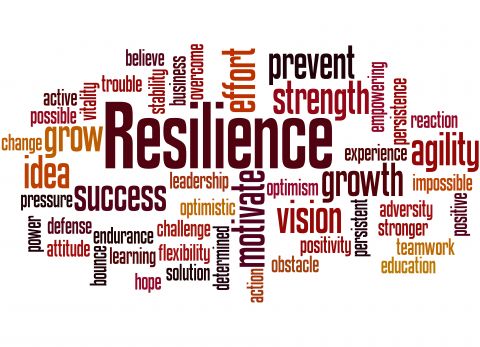The Resilience Dilemma

Schools used to be inflexible places. They knew what was good for pupils. Compulsion was everywhere. Latin, Rugby, CCF, Cross country running, cold showers.
A combination of liberalism, market forces, educational enlightenment and social change put an end to all that. The climate of modern schools places greater value on individual preference: they are customer-friendly and child focused. Little is compulsory for very long, and – during the time that it is – the rough edges have been smoothed away. Non-contact Rugby alternatives are available, cross country courses are shorter and kit is warmer and more comfortable. Even the CCF has been re-packaged to accommodate the conscientious objector. Teachers are forbidden from shouting. There is plenty of sugar on the compulsion pill.
There is a paradox that these forces have been accompanied by an educational trend which attaches unprecedented value to developing “resilience”. It is the fashionable personal quality of choice, prominent in the rhetoric of all forward-thinking educational organisations.
What does it mean? According to the dictionary, it is “toughness” and “the ability to recover quickly from difficulties”. The capacity to develop it, therefore, would seen to presuppose the existence of “difficulties”. Making some difficulty desirable, presumably?
At the same time, highly academic schools peddle the polemic of failure. Learning from failure is, apparently, important. And positive. Though not so important that the uber efficiency of ultra exam preparation should be compromised. Making mistakes that involve dropping a single exam grade are intolerable failures. A disgrace, not a learning opportunity. Fail too often and you are out of the team, the top set or the school. Failure is, indeed, a learning opportunity. It teaches pupils that failure is bad – and to be avoided. Teachers are measured on their ability to prevent failure, not to allow pupils to learn from it. Parents see their children’s failure as an opportunity for blame, not learning. Someone must be responsible. It’s time to complain.
The development of resilience requires desirable difficulties. The presence of challenge, where success would require effort and application of strategies, including delayed gratification. And an environment that can accept that the only unacceptable failures are failures of effort. The job of schools is to present pupils with challenges in all areas, and encouraging habits of working hard at them, tolerating hardship and finding satisfaction in the process of commitment and endeavour, not simply the product or the result. Children are less afraid of failure than of the consequences of it, especially in terms of adult reactions. Measuring the match score, or the exam result, is therefore misleading. It is the story behind it, the route to the result, that is the significant thing.
It isn’t enough simply to present problems, and assume that resilience will develop through osmosis. Pupils don’t learn calculus by being presented with a page of problems: they have to be taught robust processes for solving them. Personal qualities are no different.
Physical activity has a vital role in this educational process. However, it will only achieve this with the right approaches. Games coaching has become too much about technical outcomes and too little about personal ones. The industry is better at teaching passing than persistence. It does, however, have a crucial role in this educational process. If difficulties, discomfort and distress are removed completely, then the capacity to develop resilience disappears with it. Persistence through difficulty, resisting the temptation to stop or do the easy thing is the essence of developing the “toughness” of which resilience is composed. If physical activity is undemanding and comfortable it fails in one of its key purposes. If it is optional it is even worse. Presenting pupils with soft alternatives denies them important learning opportunities. It is a failure from which schools need to learn.
All of this presents a philosophical dilemma for schools: whether they see themselves as a market-driven factory for providing pupils with success – or a development organisation which is prepared to tolerate failures.